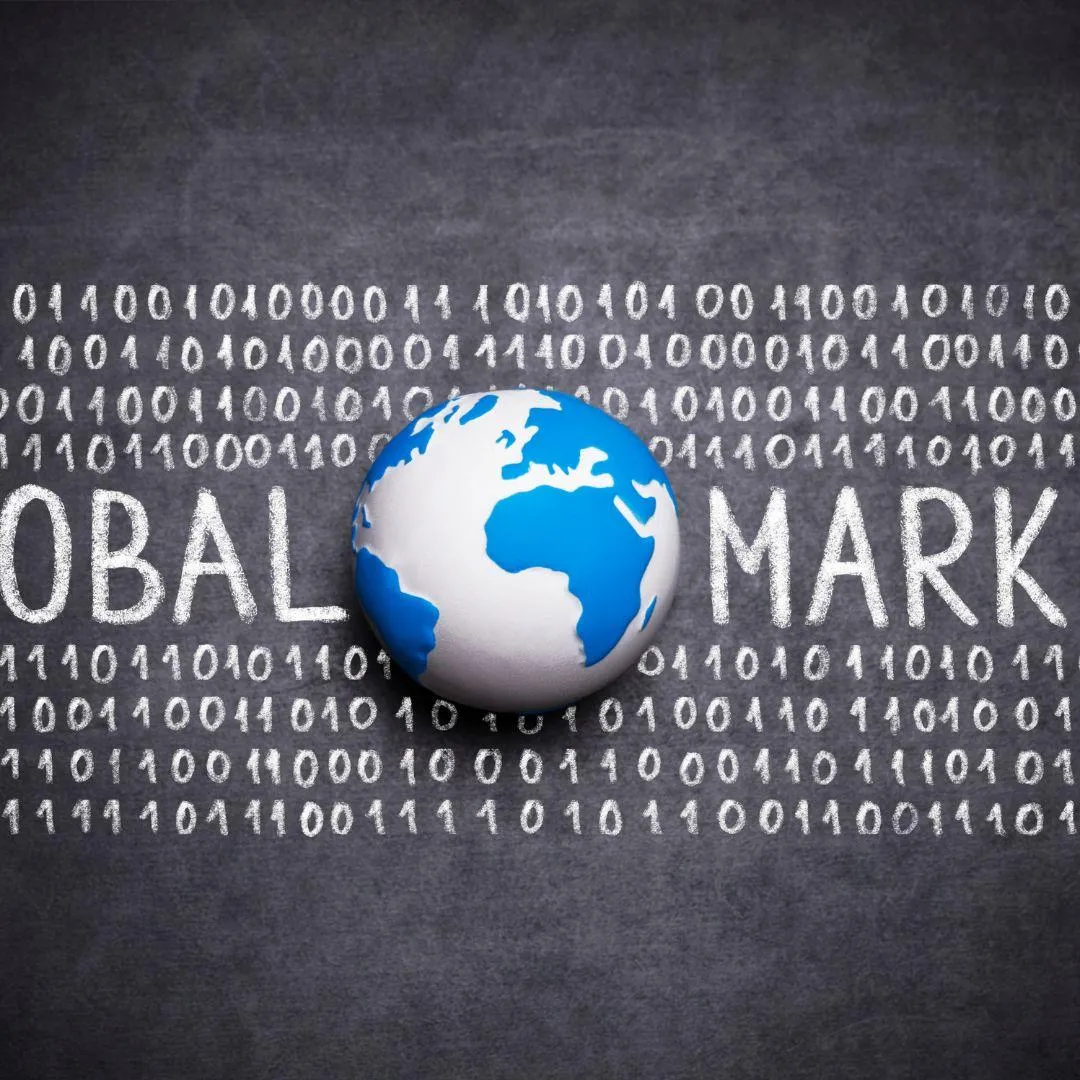OUR LATEST BLOG
Blog

Globalization: The Secret Ingredient Behind Digital Marketing Success
What is Globalization and Why Does It Matter in Digital Marketing?
Globalization refers to the interconnectedness of economies, cultures, and societies across the globe, facilitated by advancements in technology and communication. In digital marketing, this phenomenon creates a vast canvas for brands to reach diverse audiences worldwide. Companies can craft tailored campaigns that resonate with various cultural nuances and consumer behaviors, making localization an essential strategy. Understanding these differences allows marketers to create more authentic engagements that enhance brand loyalty beyond borders.
Moreover, globalization amplifies competition, as businesses are no longer confined to local markets; they must now contend with global players. This increased competition compels brands to leverage data analytics effectively analyzing trends and consumer preferences across different regions can reveal unique opportunities for growth. In a digital landscape where every click counts, recognizing how globalization impacts purchasing decisions is invaluable for refining targeting strategies and delivering personalized experiences that stand out on a global stage. Embracing this dynamic not only positions businesses favorably within their industries but also fosters innovation crafted by a rich tapestry of international insights.
What are the key components of globalization that impact digital marketing?
Globalization impacts digital marketing through several key components:

Market Expansion: Access to global markets increases customer bases.
Cultural Adaptation: Tailoring content to diverse cultural preferences and languages is essential.
Technology: Digital tools and platforms enable global reach.
Competition: Businesses face increased competition from international companies.
Data Privacy Laws: Navigating varying international data protection regulations is crucial.
Localization: Adapting strategies for local relevance boosts engagement and conversion rates.
How Does Globalization Influence Consumer Behavior ?
Exposure to diverse cultures and global trends through digital channels broadens consumers' choices, leading to a demand for varied products and experiences. Consumers increasingly value brands that reflect global standards and innovation while also appreciating local relevance. Social media and online reviews further amplify global influence, affecting trust and purchasing decisions. Additionally, price comparisons across borders and increased accessibility to international brands impact buying patterns. Marketers must understand these evolving behaviors, leveraging insights into cross-cultural dynamics and global trends to create targeted, resonant marketing strategies for diverse audiences.
What Strategies Can Marketers Use to Leverage Globalization?

In the context of the shifting digital landscape, marketers should focus on the top marketing trends of 2024, particularly the integration of first-party data and the transition away from third-party cookies. According to the latest trends report, adopting generative AI for email marketing and social media marketing can significantly enhance user engagement and optimize marketing channels. As outlined by the marketing institute, staying abreast of these key digital marketing trends is essential for success.
Furthermore, the 2024 digital marketing trends will require marketers to develop a robust marketing plan that incorporates emerging digital marketing trends in 2024. This includes leveraging digital marketing trends from 2023 while exploring new avenues to engage consumers effectively. By employing innovative strategies and harnessing the power of AI, marketers can adapt to the trends shaping the industry and ensure they remain competitive in an increasingly global marketplace.
What are the best practices for localizing digital marketing campaigns?

Understand Local Culture: Research cultural nuances, preferences, and values to tailor your message appropriately. What resonates in one region may not work in another.
Language Adaptation: Go beyond translation—ensure the language captures local slang, idioms, and context. Consider hiring native speakers to craft content that feels authentic.
Visual Elements: Adapt images, colors, and symbols to align with local cultural significance. Visuals should evoke positive emotions and avoid unintentional offense.
Platform Preferences: Different regions have varying preferences for digital platforms. Identify and focus on the most popular local channels, whether it's social media, search engines, or messaging apps.
Local SEO Optimization: Use region-specific keywords, meta tags, and backlinks to improve local search visibility and attract organic traffic.
Compliance with Local Laws: Understand and adhere to local regulations, especially regarding data privacy, advertising standards, and consumer protection laws.
Test and Learn: Continuously test localized content and campaigns, gathering insights to refine your approach and ensure relevance.
What Challenges Do Marketers Face in a Globalized Digital Landscape?
Cultural Differences: Marketers must understand and respect cultural nuances, beliefs, and preferences when crafting campaigns. A campaign that resonates in one region may offend or miss the mark in another. For example, Pepsi’s "Come Alive with Pepsi" slogan was mistakenly translated in Chinese as "Pepsi brings your ancestors back from the grave," causing a backlash.
Language Barriers: Accurate and culturally relevant translations are critical. Miscommunication can arise from literal translations that fail to capture local idioms and humor. KFC’s slogan "Finger-lickin’ good" was mistranslated to "Eat your fingers off" in China, negatively affecting its brand image.
Regulatory Compliance: Different countries have varying laws on data privacy, advertising standards, and consumer protection. Marketers must stay informed and comply with regulations like GDPR in Europe or CCPA in California to avoid hefty fines.
Local Competition: Competing with established local brands that have strong customer loyalty can be tough. For instance, while Uber is popular globally, it struggled in China due to the dominance of local competitor Didi Chuxing.
Consistent Brand Messaging: Maintaining a consistent brand voice while adapting to local contexts is challenging. Global brands like McDonald’s localize their menu and marketing to suit regional tastes while preserving core brand elements.
Logistics and Infrastructure: Digital marketing efforts can be hampered by varying levels of internet access, payment systems, and delivery logistics in different regions, affecting overall campaign effectiveness and customer experience.
What is the Future of Globalization in Digital Marketing?

The future of globalization in digital marketing is set to be shaped by technology advancements, evolving consumer behaviors, and the seamless integration of global markets. One major trend will be hyper-personalization at a global scale, enabled by big data and AI, which allows marketers to create highly tailored experiences for consumers across diverse regions. For instance, platforms like Netflix leverage AI to provide personalized content recommendations suited to different cultural preferences, enhancing global user engagement.
The growth of cross-border e-commerce will also play a pivotal role. Digital platforms such as Amazon, Alibaba, and Shopify are making it easier for businesses to reach international customers, pushing companies to expand their digital presence beyond local borders. In this context, localized content and experiences will become even more critical. Brands will need to craft messages that resonate with specific cultural nuances, as demonstrated by Coca-Cola's “Share a Coke” campaign, which effectively connected with local audiences by using names and languages relevant to each market.
The adoption of emerging technologies like augmented reality (AR), virtual reality (VR), and voice search will further redefine global marketing strategies, enabling brands to create immersive and culturally relevant experiences. At the same time, there will be a growing emphasis on sustainability and ethical marketing, as global consumers increasingly prioritize brands that demonstrate transparency and ethical practices.
Data privacy and security concerns will continue to grow, pushing marketers to find a balance between personalized marketing and regulatory compliance. The future will also see a stronger focus on creating omnichannel strategies that integrate both digital and offline channels to provide a seamless customer experience across borders. Overall, the future of globalization in digital marketing will be characterized by innovation, cultural sensitivity, and a deep commitment to customer-centric strategies that reach beyond geographical boundaries.
How will emerging technologies shape the future of global marketing?
Emerging technologies are poised to revolutionize the landscape of global marketing in several profound ways. As businesses increasingly leverage advancements in artificial intelligence (AI), machine learning, augmented reality (AR), virtual reality (VR), and blockchain, they can create more personalized and engaging customer experiences that transcend geographical boundaries.
1. Personalization at Scale - AI and machine learning algorithms enable marketers to analyze vast amounts of consumer data in real time. This capability allows for hyper-targeted marketing strategies that cater to individual preferences and behaviors. As a result, brands can deliver tailored content, product recommendations, and offers, enhancing customer engagement and loyalty.
2. Enhanced Customer Experience - Technologies like AR and VR provide immersive experiences that can transform how consumers interact with products and brands. For instance, virtual try-ons for clothing or makeup allow customers to visualize how a product will look before making a purchase, reducing return rates and increasing satisfaction. These technologies also enable brands to create memorable experiences that resonate on a deeper emotional level.
3. Omnichannel Strategies - The integration of emerging technologies facilitates a seamless omnichannel marketing approach. Brands can connect with consumers across various platforms—social media, websites, mobile apps, and in-store experiences—ensuring a consistent message and enhancing brand recognition. Tools like chatbots and voice assistants further streamline customer interactions, providing instant responses and support.
4. Data-Driven Decision Making - With the proliferation of big data, marketers can gain deeper insights into consumer behavior and market trends. Predictive analytics allows businesses to anticipate customer needs and optimize their marketing campaigns accordingly. This data-driven approach not only improves ROI but also enables more agile marketing strategies that can quickly adapt to changing market conditions.
5. Sustainability and Ethical Marketing - As consumers become more aware of social and environmental issues, emerging technologies can help brands adopt transparency and sustainability practices. Blockchain technology, for instance, can provide traceability in supply chains, allowing consumers to verify the ethical sourcing of products. This shift will encourage brands to align their marketing messages with their values, fostering trust and loyalty.
6. Global Reach with Local Relevance - Emerging technologies enable brands to expand their reach into international markets while maintaining a local touch. AI-powered translation tools and cultural analysis can help tailor marketing messages to resonate with diverse audiences. This localization fosters a deeper connection with consumers, making global brands feel more relatable and accessible.
7. Influencer Marketing Evolution -The rise of social media influencers has already changed the marketing landscape, and emerging technologies will further enhance this trend. AI can help identify the most effective influencers for specific campaigns based on data analytics, while AR can allow influencers to create unique content that engages their audiences in new and exciting ways.
8. Automation and Efficiency Marketing - automation tools powered by AI can streamline repetitive tasks, allowing marketing teams to focus on strategy and creativity. Automated content generation, email marketing, and social media management can enhance productivity, enabling businesses to respond quickly to market changes and
What trends should marketers watch out for in the coming years?

Several digital marketing trends for 2024 warrant the attention of professionals. As outlined in the latest marketing report, the integration of AI tools into content creation will revolutionize content marketing strategies. Global marketers must adapt their digital marketing strategies to leverage generative AI tools effectively, ensuring their marketing activities resonate across various social media platforms.
Furthermore, the top digital marketing trends indicate a shift towards personalized and interactive content, as content marketers increasingly utilize AI to enhance user engagement. As digital marketers plan to invest in these new trends, it is imperative they consider the evolving media trends and the importance of a robust digital strategy. Expect to see a marked emphasis on utilizing free digital marketing resources to optimize return on investment, as outlined in the state of marketing report. Ultimately, adapting to these latest digital marketing trends will be essential for remaining competitive in the marketing game of 2024.











